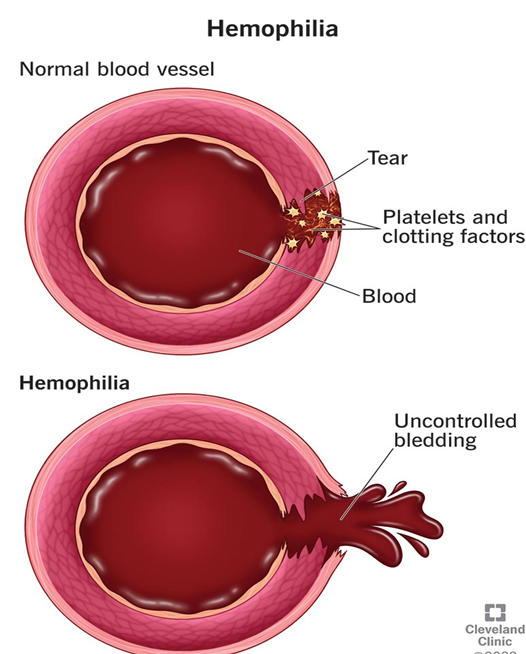Abnormal phenylalanine levels have a cumulative toxic effect on which body system?
Musculoskeletal system
Renal system
GI system
Central nervous system
The Correct Answer is D
The correct answer is d) Central nervous system.
Choice A reason:
The musculoskeletal system is not primarily affected by abnormal phenylalanine levels. Phenylketonuria (PKU) is a metabolic disorder that primarily impacts the brain and cognitive functions. While muscle weakness can occur due to overall health deterioration, it is not the primary system affected by phenylalanine toxicity.
Choice B reason:
The renal system is not the main target of phenylalanine toxicity. Although the kidneys play a role in filtering blood and excreting waste, the toxic effects of phenylalanine accumulation are more pronounced in the brain. Therefore, the renal system is not the primary system affected by abnormal phenylalanine levels.
Choice C reason:
The GI system, or gastrointestinal system, is not the primary system affected by abnormal phenylalanine levels. While dietary management is crucial for individuals with PKU to control phenylalanine intake, the toxic effects are primarily seen in the brain. The GI system is involved in the absorption and digestion of nutrients, but it is not the main system impacted by phenylalanine toxicity.
Choice D reason:
The central nervous system (CNS) is the primary system affected by abnormal phenylalanine levels. Phenylketonuria (PKU) leads to the accumulation of phenylalanine in the brain, causing severe brain damage and cognitive impairments. High levels of phenylalanine can disrupt neurotransmitter synthesis and brain development, leading to intellectual disabilities and other neurological issues. Therefore, the CNS is the main system impacted by phenylalanine toxicity.
Nursing Test Bank
Naxlex Comprehensive Predictor Exams
Related Questions
Correct Answer is B
Explanation
Choice A reason:
Basketball, while a popular sport, involves a significant amount of physical contact and the risk of falls and injuries1. For children with hemophilia, engaging in contact sports can increase the risk of bleeding episodes and joint damage. Therefore, basketball is not the most recommended sport for children with hemophilia.
Choice B reason:
Swimming is highly recommended for children with hemophilia because it is a low-impact sport that provides excellent cardiovascular exercise without putting undue stress on the joints. The buoyancy of the water supports the body, reducing the risk of injuries and bleeding episodes. Swimming also helps improve muscle strength and flexibility, which can be beneficial for overall health and well-being.

Choice C reason:
Soccer, like basketball, involves a lot of running, physical contact, and the potential for falls and injuries. These factors make soccer a less suitable sport for children with hemophilia, as it can increase the risk of bleeding and joint damage. Therefore, soccer is not the most recommended sport for children with hemophilia.
Choice D reason:
Skating, whether roller skating or ice skating, carries a risk of falls and injuries. While it can be a fun and enjoyable activity, the potential for accidents makes it less suitable for children with hemophilia. The risk of bleeding episodes and joint damage is higher with activities that involve a significant risk of falls.
Correct Answer is B
Explanation
Choice A reason:
Removing the harness several times a day is not recommended. The Pavlik harness should be worn continuously as prescribed by the doctor to ensure proper hip development. Removing it frequently can disrupt the treatment and may lead to complications.
Choice B Reason:
Placing a superabsorbent disposable diaper over the harness is important to keep the harness clean and dry. This helps prevent skin irritation and maintains hygiene. It is essential to ensure that the diaper is properly positioned to avoid any interference with the harness.

Choice C Reason:
Returning to the clinic every 12 weeks for adjustment of the harness is not accurate. Typically, follow-up visits are more frequent, especially in the initial stages of treatment. Regular adjustments are necessary to ensure the harness is fitting correctly and effectively promoting hip development.
Choice D Reason:
Applying lotion or powder to minimize skin irritation is not recommended. Lotions and powders can accumulate and cause further irritation or infection. Instead, keeping the skin clean and dry is the best way to prevent irritation while using the Pavlik harness.
Whether you are a student looking to ace your exams or a practicing nurse seeking to enhance your expertise , our nursing education contents will empower you with the confidence and competence to make a difference in the lives of patients and become a respected leader in the healthcare field.
Visit Naxlex, invest in your future and unlock endless possibilities with our unparalleled nursing education contents today
Report Wrong Answer on the Current Question
Do you disagree with the answer? If yes, what is your expected answer? Explain.
Kindly be descriptive with the issue you are facing.
